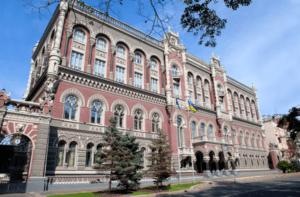
The current estimated number of people impacted in Ukraine is 18 million, of which 6.7 million are internally displaced, the WHO Europe said in a statement on Monday.
“Nearly 3 million people have fled the country. Supply chains have been severely disrupted. Many distributors are not operational, some stockpiles are inaccessible due to military operations, medicine supplies are running low, and hospitals are struggling to provide care to the sick and wounded,” WHO said.
WHO said that it is coordinating with partners the provision of humanitarian health assistance, both within Ukraine and on its borders, and providing technical support and surge staff.
In particular, on March 8, WHO delivered to Kyiv 10 tonnes of trauma and emergency surgery kits to Kyiv, to be distributed to warehouses in seven regions: Kyiv, Poltava, Dnipropetrovsk, Odesa, Zaporizhia, Zhytomyr and Cherkasy.
In addition, on March 9 through March 11, 9 shipments of 10 tonnes each were dispatched to Kharkiv via Poltava; to Sumy via Poltava; to Dnipro; to Kherson via Dnipro; to Mariupol via Dnipro; to Mykolaiv; to Zhytomyr; to Zaporizhia; and to Cherkasy. Each shipment serves 150 trauma patients and 15,000 primary health care patients for 3 months.
WHO sid that All supplies are distributed in close coordination with the Ministry of Health, based on WHO critical needs assessments, public health risk, service assessments and logistic capacity. “The coming days and weeks will see a constant flow of medical supplies, as part of an effort to ensure people’s access to essential drugs and medical care,” the organization said.
The WHO also said that, As of 12 March WHO had verified a total of 31 attacks on health care between 24 February and 11 March 2022, resulting in 12 deaths and 34 injuries, of which 8 of the injured and 2 of those killed were health workers. More attacks are being verified.
“WHO strongly condemns acts of violence against health care. Every single attack deprives people of life-saving services. Attacks on health care are violations of international humanitarian law and human rights,” the organization said.

The National Bank of Ukraine sold $473.04 million and bought $206.8 million during the week of March 7-12, according to a statement on its website.
According to it, in addition to the “net” sale of $266.2 million, the NBU also carried out a net sale of EUR74.4 million: the central bank sold EUR91.55 million and bought EUR17.17 million.
As reported, in the first week and a half after the war started by Russia on February 24, the NBU bought $843.3 million and EUR37.5 million and sold $144 million and EUR17.5 million, since the ban on the purchase of foreign currency was only introduced, and the list of critical imports was not significantly expanded.
In total, since the beginning of the year, the National Bank has purchased $1.698 billion and EUR54.67 million on the market, and sold $3.387 billion and EUR109.05 million.
Ukraine’s international reserves as of March 7, 2022, according to the NBU, amounted to $27.7 billion.

President of Ukraine Volodymyr Zelensky spoke with German Chancellor Olaf Scholz and French President Emmanuel Macron and discussed the prospects for peace talks and confronting the Russian aggressor.
“Spoke with Olaf Scholz, Emmanuel Macron. We discussed countering the aggressor, Russia’s crimes against civilians. I ask my partners to help in releasing the captive mayor of Melitopol. Prospects for peace talks also discussed. We must stop the aggressor together,” Zelensky said.

Ambassador of Ukraine to Israel Yevhen Korniychuk has filed a lawsuit with the Supreme Court of Israel against the actions of the Israeli government and personally Interior Minister Ayelet Shaked on the issue of accepting refugees from Ukraine.
The suit, according to ITV channel 12, alleges that Minister Shaked violates the agreements reached earlier by Jerusalem and Kyiv on a visa-free regime, using “vague language” for this. The ambassador noted that he decided to resort to filing a lawsuit after all diplomatic options had been exhausted to protect Ukrainian citizens seeking asylum from the war.
The lawsuit focuses on the fact that the Interior Minister of Israel does not have the authority to make a sole decision on the issue of accepting refugees from Ukraine; the plaintiffs believe that this issue should be decided by the government of the Jewish state in close cooperation with the Knesset commission on international affairs.
Earlier, the Interior Ministry extended the period of stay in Israel for Ukrainian tourists legally staying in the country by two months.

On March 14, Kazakhstan will send the first batch of humanitarian aid to the population of Ukraine, the Kazakh interdepartmental commission said on Sunday.
“The Commission on International Humanitarian Aid made a decision to allocate a batch of medical supplies to the population of Ukraine … The issue of delivering humanitarian cargo along the route Almaty-Katowice (Poland) by aircraft has been worked out. Humanitarian aid to citizens of Ukraine will be sent by two flights on March 14 and March 15, 2022 from the airport of Almaty,” the message says.
The total weight of humanitarian aid will be 28.2 tonnes and 17 types of medicines: antibiotics, anti-inflammatory, antitussive and antihypertensive drugs, the report says.

Pope Francis has called on ceasing the bloodshed in Ukraine and underlined that Mariupol has become a city martyred by the ruinous war that is devastating Ukraine.
“The city that bears the name of the Virgin Mary, Mariupol, has become a city martyred by the ruinous war that is devastating Ukraine. Before the barbarism of killing children and innocent and defenseless citizens, no strategic reasons hold: the only thing to be done is to cease the unacceptable armed aggression before cities are reduced to cemeteries,” he said on Twitter on Sunday.
“With an aching heart I add my voice to that of the common people, who implore the end of the war. In the name of God, listen to the cry of those who suffer, and put an end to the bombings and the attacks!” Pope Francis said.